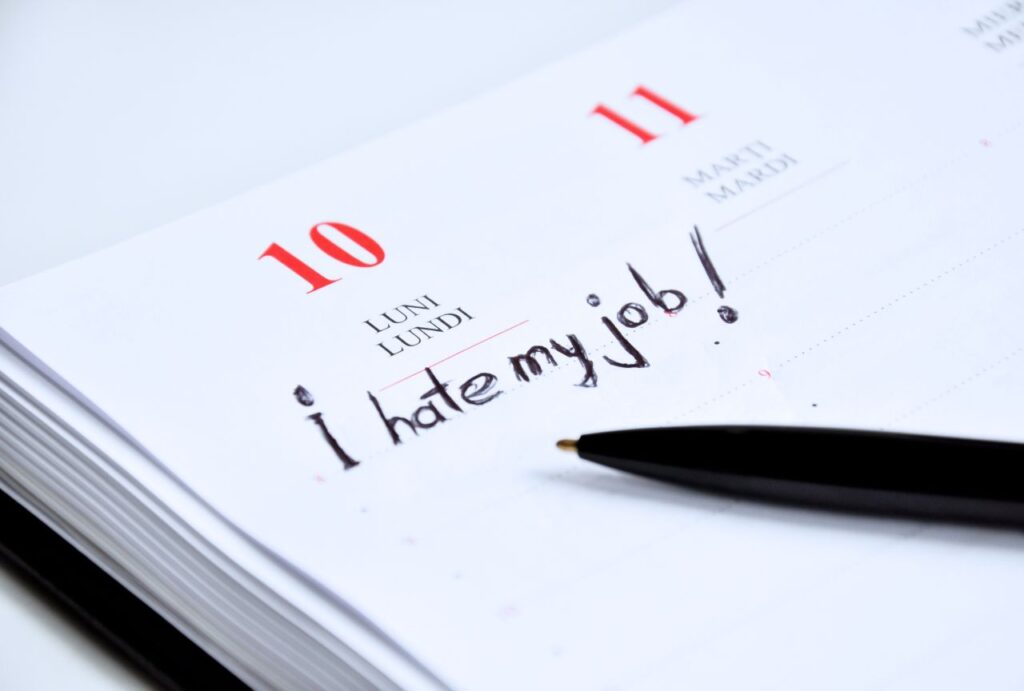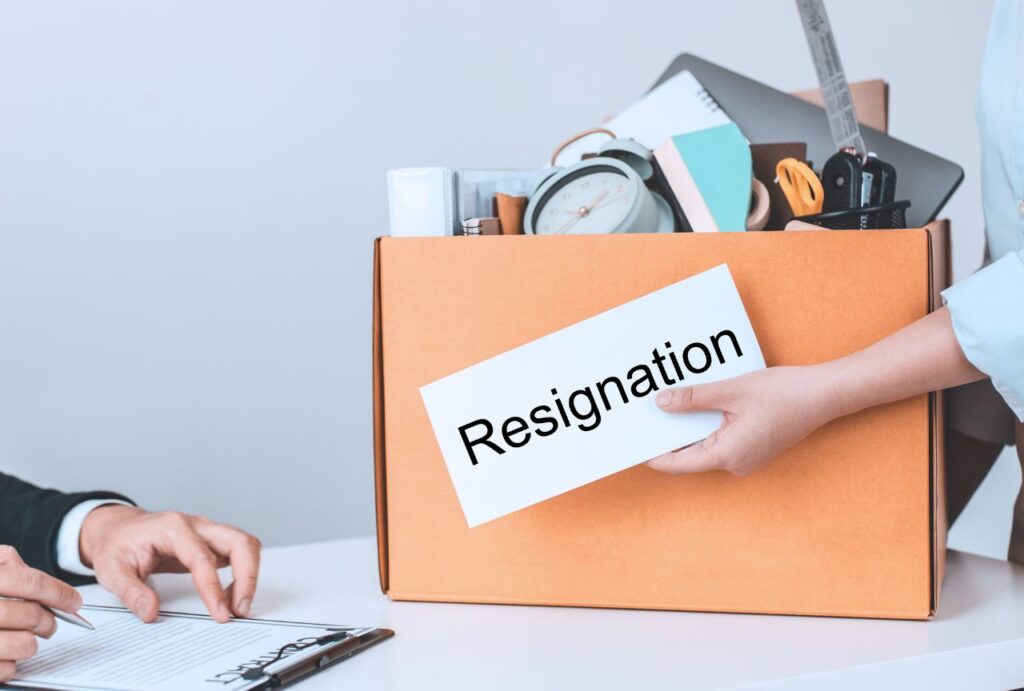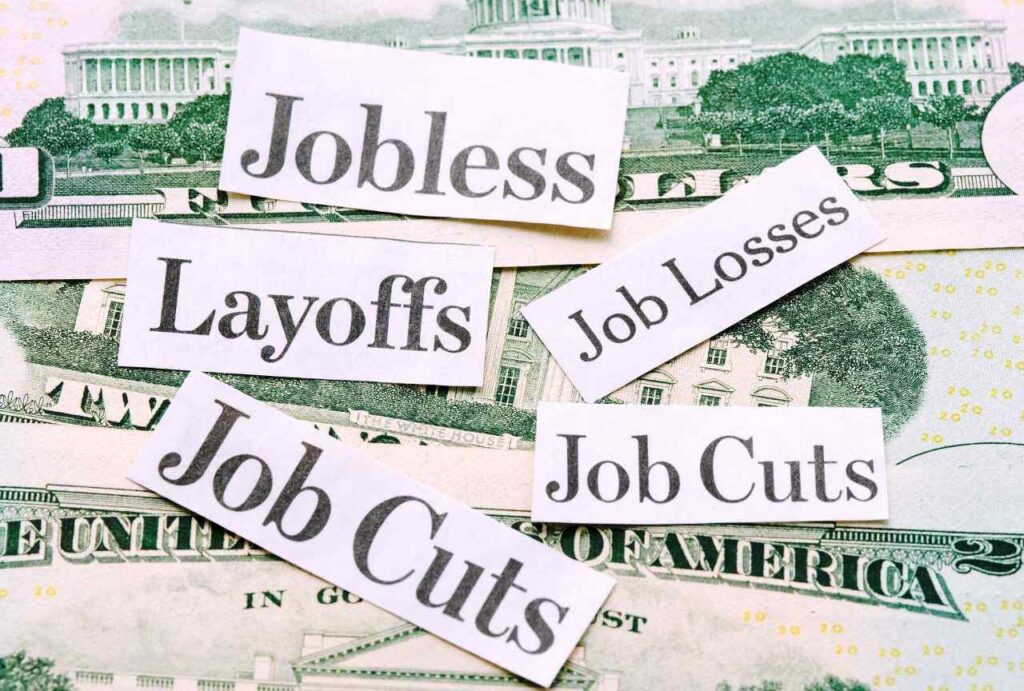Deciding whether to quit your job without another one lined up is not something most people take lightly. It’s a decision often fueled by long-standing internal pressure, repeated warning signs, and a deep sense that staying any longer could cause more harm than good. While conventional advice warns against walking away without a safety net, the truth is that some situations leave you with few other options.
This is for those who have reached that point, the stage where the job is no longer sustainable, and delaying action may come at a personal or professional cost.
If you’re asking yourself whether it’s reasonable to leave without another job, there may be more clarity than doubt beneath the surface. The following signs can help you determine whether it’s time to prioritize your well-being, values, or career path.. even if it means facing uncertainty temporarily.
I. Why This Decision Is So Complex
1. The Pressure to Follow Traditional Career Advice
Quitting a job without having another offer lined up often goes against widely accepted career advice. Most professionals are told to avoid gaps in their employment history, maintain financial stability, and keep moving forward with a clear backup plan. These expectations can cause people to stay in roles that no longer align with their well-being or goals. As a result, even when staying becomes unsustainable, individuals may feel guilt or self-doubt for wanting to leave without a defined next step.
2. Financial Uncertainty Adds to the Risk
Leaving a job without another income source introduces a level of financial uncertainty that many find difficult to manage. The risk of lost income, reduced benefits, and added expenses can delay important decisions. This financial factor is one of the main reasons people remain in roles that negatively affect their quality of life. Without preparation or alternative sources of support, the idea of quitting can seem unrealistic, even if continuing the job is no longer viable.
3. Social Judgment and Career Stigma
There is often judgment associated with leaving a job voluntarily without another one secured. Peers, family members, and even hiring managers may view the decision as irresponsible or unplanned. This type of judgment can affect confidence and self-perception, leading individuals to question their ability to make sound career choices. Over time, this social pressure may prevent someone from taking steps that could ultimately benefit their long-term growth.
4. Staying Too Long Can Cause Greater Harm
The difficulty of this decision often lies in balancing short-term risk against long-term impact. While quitting without another job can create short-term instability, staying too long in a toxic or unhealthy environment can result in professional disengagement, reduced confidence, or even burnout. Knowing when the cost of staying has exceeded the cost of leaving is one of the most important factors in making this decision clearly.
II. 7 Signs It’s Okay to Quit Without Another Job
1. You’re Numbing Yourself Just to Get Through the Day
One of the strongest signs that it may be time to leave your job—even without another one secured—is when you begin disconnecting from your daily reality just to tolerate work. This isn’t about regular stress or frustration. It’s about consistently avoiding your emotions or suppressing your mental state in order to function.
People in this situation may turn to excessive screen time, overconsumption of media, compulsive behaviors, or emotional withdrawal during and after work hours. This kind of coping pattern is not a solution—it’s a response to deep exhaustion or a working environment that has become incompatible with your well-being.
When emotional detachment becomes a daily strategy, the issue is no longer about temporary dissatisfaction. It signals a serious disconnect between what your job requires and what your mind and body can handle. Over time, continuing in this state can affect motivation, relationships, and overall mental health.

Also Read: 7 Clear Signs of a Toxic Work Environment You Should Never Ignore
2. Your Job Is Causing Repeated Physical Illness
If your job is consistently linked to physical symptoms or illness, that is a critical warning sign. Chronic stress from a toxic environment, unsustainable workload, or unresolved conflict can manifest in recurring health issues such as migraines, digestive problems, sleep disturbances, or weakened immunity.
These physical responses are not random. They often reflect the strain of prolonged emotional and psychological stress that the body can no longer absorb. When sick days become regular recovery days from your work environment rather than actual illness, it’s a signal that your job is compromising your health.
While quitting without another job may create short-term financial or logistical concerns, continuing in a role that damages your health can result in longer-term setbacks—both physically and professionally. Health-related burnout is one of the most difficult forms of recovery, and recognizing this early can protect your future stability.
3. You’re Staying Out of Fear, Not Strategy
Staying in a job purely out of fear is very different from staying because of a well-thought-out plan. Fear-based decisions are often rooted in anxiety about income loss, reputation damage, or not being able to find something better. These concerns are valid, but when fear becomes the only reason for staying, it often leads to paralysis and decreased professional confidence.
This mindset can prevent you from seeing other options clearly. Instead of preparing or exploring alternatives, you may find yourself staying stagnant, avoiding risk, and tolerating situations that continue to worsen. In some cases, fear of instability can cause people to delay their exit far longer than necessary—until the damage becomes irreversible.
Recognizing that your decision to stay is no longer about long-term thinking but about short-term survival is a sign that your job has stopped serving your career or your personal development. If nothing changes and no effort is made to shift the situation, continuing to stay will likely result in further frustration and disconnection.
4. You’ve Lost Your Identity Outside of Work
When your job begins to define your entire sense of self, that’s a strong signal that something is out of balance. If you find that your interests, energy, and thoughts are entirely centered around work—even during your personal time—it may be a sign that the role has overtaken areas of your life that should remain distinct.
This can happen gradually. It often starts with long hours, increased responsibilities, or pressure to meet expectations. Over time, what once felt like dedication can lead to a complete absence of hobbies, meaningful social engagement, or any connection to your personal values. You no longer feel engaged in activities that aren’t directly tied to your job—and that can cause emotional fatigue and disconnection from who you are outside of your professional identity.
When work is no longer just a job but the only thing shaping your decisions and daily structure, the cost of staying can grow far beyond productivity. It can affect mental clarity, emotional well-being, and long-term personal growth. Recognizing this shift is crucial, especially if you feel like you’ve stopped developing as a person outside your title or role.
5. Your Confidence Has Eroded So Much You Can’t Apply Elsewhere
One of the most damaging long-term effects of a toxic or unfulfilling job is the gradual loss of self-confidence. You may begin to question your qualifications, value, or ability to contribute in another role. This mindset doesn’t come from facts—it often develops after repeated dismissal, lack of recognition, micromanagement, or being overlooked in your current environment.
Over time, you may stop applying for new roles, not because you lack the skills, but because you’ve absorbed the belief that you wouldn’t be considered or that you have nothing valuable to offer. This internal erosion can become so strong that even small professional risks feel overwhelming.
When your current job has created a pattern where your professional identity feels diminished, staying only reinforces that cycle. It’s difficult to move forward when your current environment continuously undermines your potential. Quitting, even without another role secured, can sometimes be the first step toward rebuilding your confidence, regaining perspective, and reconnecting with your professional strengths.
6. Management Has Proven They Won’t Change—After You Tried
Many professionals give management the benefit of the doubt. They ask for improvements, give honest feedback, suggest practical solutions, or set boundaries. When these efforts are consistent and professional—and still ignored—it becomes clear that the work environment is unlikely to shift.
Staying in a workplace that has shown resistance to change can lead to frustration, disengagement, and a sense of powerlessness. It sends the message that your well-being, input, or experience doesn’t hold weight. If your concerns have been clearly expressed and your attempts at resolution were met with inaction, deflection, or denial, then hoping for future change becomes unproductive.
At some point, it’s not about whether management understands your concerns—it’s about whether they’ve shown the willingness or capacity to address them. Continuing in a role where you’ve exhausted all reasonable attempts to create improvement can result in long-term dissatisfaction and even burnout. In such cases, stepping away may be necessary, even if another job isn’t lined up yet.

Also Read: 10 Clear Signs You’re About to Be Fired or Laid Off – Spot Them Early
7. You’re Starting to Sabotage Your Reputation
When a job has pushed you to your limits, one of the final warning signs is behavioral change that begins to affect how others see your performance. You may notice an increase in missed deadlines, frequent lateness, reduced engagement, or passive resistance to management. These actions are often unintentional. They reflect a state of frustration, detachment, or loss of motivation that can slowly harm your credibility.
If you previously had a strong reputation for reliability and professionalism, these shifts can be damaging. What may have started as internal burnout can turn into outward behavior that affects future references, career opportunities, and how you’re perceived in your field.
The longer this continues, the harder it becomes to separate your current work environment from your long-term professional image. If your job is creating a version of you that no longer aligns with your values or career goals, the risk to your reputation may outweigh the temporary uncertainty of quitting without another role.
III. How to Prepare (Even If You’re Not Fully Ready Yet)
Leaving a job without another one lined up is a difficult step. But when the signs are clear, it’s important to prepare thoughtfully—even if you’re still undecided. Here’s how to begin the process in a way that supports your future, regardless of your timeline.
1. Reduce Financial Pressure Where Possible
Before making any move, take a close look at your financial situation.
- Cut back on non-essential spending
- Avoid new financial obligations during this period
- Build a short-term financial cushion, even if small
Preparation is not about perfection—it’s about creating a buffer that gives you room to breathe once you exit.
2. Identify Temporary or Flexible Income Options
If your current role is unsustainable, but you still need income, look into short-term freelance, remote, or part-time work. This can reduce pressure while giving you space to recover and reassess your goals.
You don’t need a perfect job right away—you need space to reset without financial strain.
3. Protect Your Health and Mental Well-being First
Your physical and mental state may already be affected. Before thinking about productivity or job applications, focus on getting rest and clarity.
Whether through therapy, support groups, journaling, or simply time away from stress—prioritizing recovery will improve decision-making and long-term planning.
4. Clarify What You Want Next (But Don’t Rush It)
After leaving, give yourself time to reflect on what you actually want.
- What kind of work culture fits you?
- What tasks or responsibilities do you no longer want to deal with?
- What matters more now than it did before?
This clarity comes from distance. Use it to reset your direction without the pressure to act immediately.
Quitting your job without another one lined up is a serious decision, but in some cases, it’s the right one. When your role is damaging your health, identity, or professional future, staying may carry greater risks than leaving. These signs are not about temporary frustration—they point to deeper issues that require honest assessment and timely action.
If you recognize yourself in several of these points, you’re not being unreasonable. You’re paying attention to what’s no longer working. With thoughtful preparation and a clear plan to recover and realign, stepping away can be the first step toward something stronger, healthier, and more aligned with your values.



